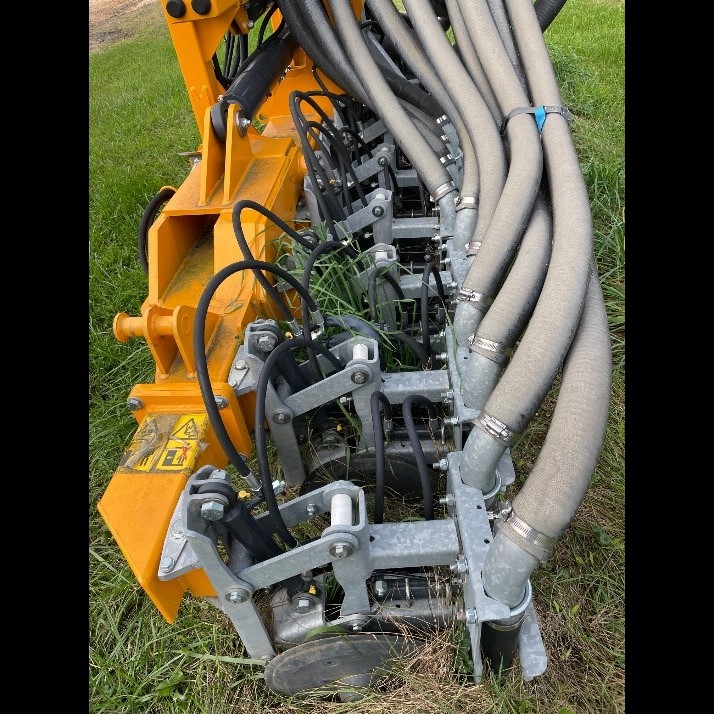By Hilary Solomon, Poultney Mettowee Natural Resources Conservation District
This year, several Mettowee Valley farms -- including Southwind Farm, Walnut Hill Farm, and Haystack Farm -- worked with the Poultney Mettowee Natural Resources Conservation District (NRCD) and the Vermont Land Trust to create an equipment cooperative pilot project. The group, dubbed the Mettowee Valley Equipment Cooperative, raised money to purchase specialized equipment that might otherwise be prohibitively expensive for a small family farm.
The main goal of the cooperative is to facilitate conversion from conventional to organic grass-based farming techniques, support diversification of organic cropping practices, protect water quality, and protect against climate change, if possible. For instance, specialized equipment can enable the use of row crops on organic farms and can help improve water quality through better manure management and reduced tillage practices. In addition to these environmental benefits, access to pricy equipment can enable small farms to enter into organic dairy farming, produce production, and expand into the creation of other value-added organic products.
One of the most important aspects of this project is its collaborative nature. The new equipment will be available to a group of farms in the Mettowee Valley that can work together to maximize its utility and share their experience. As the project continues, the cooperative will work with Poultney Mettowee NRCD to maintain the equipment, manage the logistics of the rental program, and track the equipment’s use and benefits, with the hopes of demonstrating a successful model for other farm partnerships here in Vermont. As the program develops and becomes established, it will be expanded to include more area farms.
 The first piece of equipment purchased by the cooperative, with support from the VAAFM Capital Equipment Assistance Program (CEAP) and Vermont Housing and Conservation Board (VHCB) Water Quality Grants, is a Veenhuis grassland manure injector. This injector will support grass-based organic operations in pastures and hayfields and provide a suite of co-benefits including improved air quality, water quality, and soil health. As Jeremy Russo of Southwind Farm explained, “The manure injector will allow me to deliver manure into the soil instead of spread it on top of my pastures, creating much more flexibility to manage manure during dry periods, while rotating my herd throughout the summer months.”
The first piece of equipment purchased by the cooperative, with support from the VAAFM Capital Equipment Assistance Program (CEAP) and Vermont Housing and Conservation Board (VHCB) Water Quality Grants, is a Veenhuis grassland manure injector. This injector will support grass-based organic operations in pastures and hayfields and provide a suite of co-benefits including improved air quality, water quality, and soil health. As Jeremy Russo of Southwind Farm explained, “The manure injector will allow me to deliver manure into the soil instead of spread it on top of my pastures, creating much more flexibility to manage manure during dry periods, while rotating my herd throughout the summer months.”
Photo: Veenhuis Grassland Manure Injector
Looking to the future, the cooperative is excited to explore adding vertical tillage and several cultivators to their offerings. Vertical tillage allows for limited tillage and breakup of sod without the associated compaction, breakdown of soil structure, and water runoff concerns that accompany full tillage. The cultivators provide weed control without the use of herbicides.
The participants of the cooperative hope that their success will inspire similar partnerships around the state, where funders, farmers, and technical assistants such as nonprofits, Conservation Districts, or UVM Extension, work together to raise funds and purchase shared equipment to explore the feasibility of innovative technologies.

